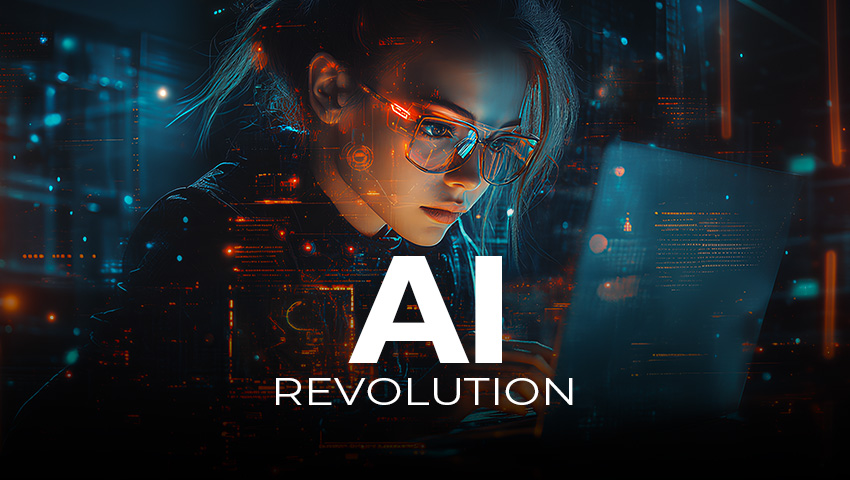
Artificial intelligence (AI) is no longer a future notion; it's here and is altering businesses worldwide. AI is creating new opportunities for the creative sector in terms of innovation, efficiency, and creativity. In this blog article, we will look at how AI is revolutionizing the creative industry, from design and content production to marketing and consumer engagement.
AI-powered technologies are having an impact on graphic design. Adobe Sensei and Canva's Magic Resize utilize machine learning algorithms to automate design processes, propose layouts, and improve photos. Designers can now generate outstanding visuals faster, enabling more time for creativity and ideation.
AI isn't just generating buzz; it's generating content. Tools like GPT-4, developed by OpenAI, can write articles, create social media posts, and even draft video scripts. These AI tools help content creators produce high-quality material efficiently, enabling them to focus on strategy and storytelling.
Artificial intelligence is revolutionizing marketing by offering more tailored campaigns. Machine-learning algorithms evaluate consumer data to forecast preferences and actions, allowing marketers to personalize messaging and offers. This results in increased engagement rates and better ROI (Return On Investment).
Artificial intelligence has made video production more advanced. Tools like Magisto and Lumen5 employ artificial intelligence to automate video editing, add special effects, and even recommend the finest material for storytelling. This makes video creation faster, more accessible, and easier for individuals who are not familiar with advanced editing skills.
AI-powered voice assistants and chatbots are transforming how businesses communicate with customers. These technologies give quick, individualized replies, which enhances customer service and engagement. They may also be included into creative campaigns, providing an interactive aspect to marketing strategies.
AI is revolutionizing animation, which has historically been time-consuming. DeepMotion and Eisko employ artificial intelligence to automate motion capture and character animation, greatly reducing production time. This enables animators to concentrate on creative storytelling and design.
AI's capacity to analyze massive quantities of data allows for predictive analytics, which assists creatives in understanding trends and audience preferences. This data-driven strategy guides content production, ensuring that it connects with the target audience and delivers the intended results.
Search engine optimization (SEO) is essential for gaining presence online. AI technologies such as MarketMuse and Clearscope study search engine algorithms and provide keyword strategies for optimizing content. This guarantees that creative content reaches its target audience successfully.
AI is becoming a creator in its own right, rather than simply an enabler of creativity. AI-generated art, music, and literature are gaining significant popularity. DeepDream and AIVA (AI for music composition) demonstrate how AI can create unique works of art, pushing the limits of what is achievable.
AI's future in the creative sector appears to be positive and full of uncapped potential. AI-generated virtual influencers, real-time language translation for worldwide campaigns, and AI-powered virtual reality experiences are among the innovations on the horizon. It will be imperative for creatives to stay ahead of these trends if they wish to fully utilize AI.
AI is more than simply a productivity tool; it also serves as a stimulus for creativity and innovation. By integrating AI, creative firms may achieve new levels of efficiency, engagement, and artistic expression. Ithmar Media is dedicated to researching and integrating AI technology to provide cutting-edge multimedia solutions to our clients.
"The ability to learn is the most important quality a machine can possess." -Elon Musk